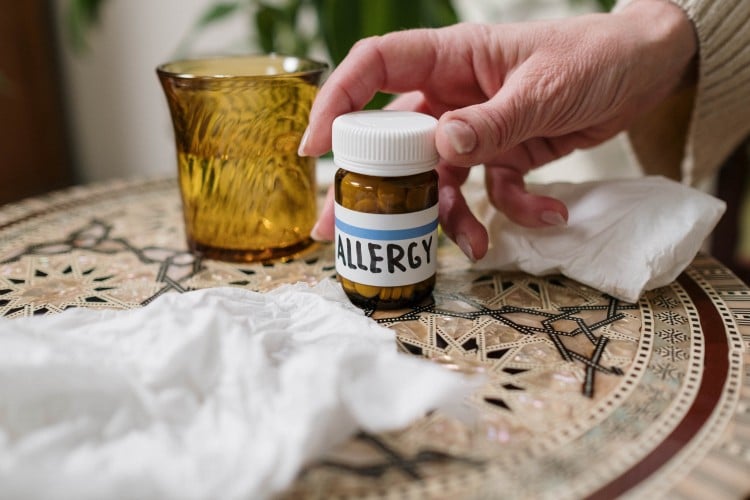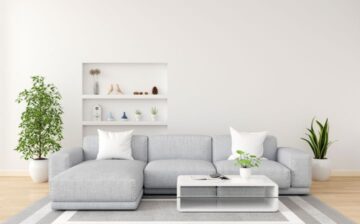
An allergen is an antigen that is identified as a harmful foreign substance by the immune system. So the immune system of our body tries to fight off these perceived threats and make various reactions known as allergies. Because of global warming and air pollution, various allergens like dust, mold, pollens, pet panders, and home pests are getting mixed with our air. So allergy issues are getting worse day by day.
Our immune system produces antibodies that identify particular antigens as harmful. So when these antigens make it through our body, the immune system reacts to them and causes inflamed skin, sinuses, airways, etc.
Air purifiers can be helpful to reduce allergenic problems. Though there is no permanent solution for allergy issues, doctors and researchers believe that air purifiers can help to control this nuisance.
If you are susceptible to allergic reactions and are wondering, How do air purifiers help people with allergies, then you’re at the right place. Don’t worry we are gathered here today to answer this question for you. So, let’s move on to the main section.
What Is An Air Purifier?
An air purifier is an air cleansing device that gathers polluted air where it is placed and after purification through various filters, releases fresh and clean air to the environment. It is composed of a powerful motor with a fan, appropriate filters, an air ventilation system, and a power source.
Air purifiers are of different sizes, different filters, and different purification technology. The difference in size dictates the different areas it can cover while different filters and different technology are compatible for different situations. Though all come with the same mechanism.
What Filtration Technology Is Good for Allergies?
High-Efficiency Particulate Air, known as HEPA, is the best filtration technology to reduce allergies. Enesta Jones, an agent of the US Environmental Protection Agency (EPA) said, “Multiple studies with portable air cleaners that use a HEPA filter have found improvements in one or more allergy and/or asthma symptoms.”
HEPA filters can capture 99.97% of dust, pollen, and other allergens up to 0.3 microns in size. HEPA filters are made of paper, fiberglass, and mesh to capture ultrafine pollutants. This filter is denser than other filters. So, using an air purifier with a HEPA filter can be helpful for people susceptible to allergic reactions.
Do Air Purifiers Help People with Allergies?
Air purifiers not only clean the air but also remove harmful allergens. Although researchers believe that air purifiers with HEPA filters can be useful to get relief from allergies, there is little medical evidence of this fact.
So, let’s look at some allergens with their sizes
- Pollen Grains (30 microns)
- Dust mite (20 microns)
- Pet allergens (1 to 20 microns)
HEPA filters can capture 99.97% of pollutants and allergens of sizes up to 0.3 microns. Therefore, from the theoretical point of view, it is clear that air purifiers can help. Besides, many allergy-sensitive people claim that after using an air purifier in their home, their allergy problems are now greatly reduced.
However, results may vary from person to person. Air purifier efficiency in preventing allergy depends on the size of the room, local weather, purifier model, and size. For better performance, you should place an air purifier where you spend most of the time. Choose an air purifier with a HEPA filter and run it 24/7. Besides, keep windows and doors closed when the air purifier is on so that pollen, dust, dust mite, and other allergens can enter the room through the window.
What Allergies Do Air Purifiers Help Alleviate?
There are many types of allergies depending on various reacting substances. Some of them are seasonal, others are year-round and some may be life-long.
Drug Allergy
Drug allergy occurs due to the reaction of the immune system to a medication. Any medication including over-the-counter, prescription, or herbal can cause drug allergy. Hives, rash, or fever are symptoms of this type of allergy.
Food Allergy
Consuming some foods can cause allergies. Milk, egg, peanuts, soy, tree nuts, etc. can cause food allergies depending on the person.
Insect Allergy
Bees, wasps, hornets, yellow jackets, cockroaches, etc. bugs can cause insect allergies. When you are in contact with the serum of these bugs or bitten by these bugs then you may suffer from insect allergy.
Latex Allergy
Latex allergy occurs due to an allergic reaction to natural rubber latex. Gloves, balloons, and other natural rubber products have latex. When your skin is in contact with these, you may suffer from latex allergy.
Mold Allergy
Mold is mainly fungi and it can grow indoors and outdoors as well. The allergy that occurs due to mold is called mold allergy.
Pet Allergy
Allergies that occur due to pet dander and fur.
Pollen Allergy
Pollen Is the most common allergy trigger and causes seasonal allergies. Most people with pollen allergy problems suffer from hay fever.
Air purifiers with HEPA filters can capture dust, pollen, pet fur, pet dander, and other allergens. So using an air purifier can be helpful to alleviate mold allergies, pet allergies, and pollen allergies.
Are Air Purifiers Good For Skin?
Many dermatologists recommend people with skin problems use an air purifier in their homes. Air purifiers can capture unwanted particles like viruses, bacteria, dust, pollens, odors, and other ultrafine contaminants from the air. These particles can be harmful to your skin. So, using an air purifier in your home can reduce various skin problems like acne, rashes, and dryness.
Can An Air Purifier Make Allergies Worse?
Though air purifiers can be helpful to alleviate allergies, ionizing air purifiers should be avoided by people with allergy sensitivity. Ionizing air purifiers may exacerbate allergy problems. So, you should avoid using an ionizing air purifier if you have allergic sensitivity.
Conclusion
So, if you are allergy sensitive, then you should buy an air purifier with an appropriate HEPA filter before the situation becomes worse. The HEPA filter can remove allergens from the air effectively for its dense fabrication.
For better efficiency, place the air purifier where you spend most of your time. Before choosing an air purifier make sure that it can perfectly cover your entire room. Avoid using ionizing air purifiers and don’t keep windows open while the air purifier is working. When you have come home from outside, then immediately change clothes and take a shower to get relief from allergies.
Hope this article about How Do Air Purifiers Help People With Allergies? will be helpful for you. Always maintain cleanliness and stay out of dust to get relief from allergies. Read more useful tips about Simple Ways to Improve the Air Quality in your New Home.
Have Experience in the Moving Industry? Want an Additional Income Stream? Work With All Around Moving!
Join our team today! We share profits 50-50 with you from all jobs you book with us. There are no recurring expenses, except purchasing your own leads. Click here to learn more.





